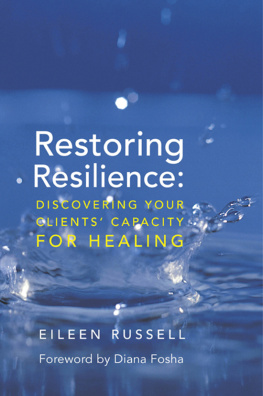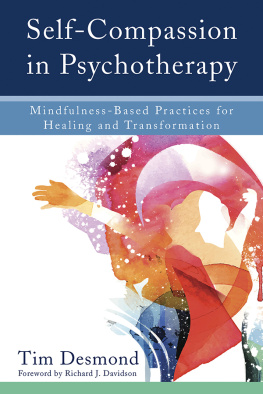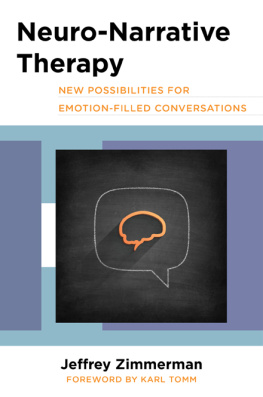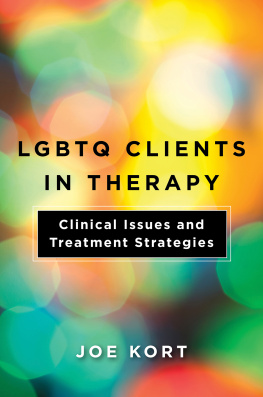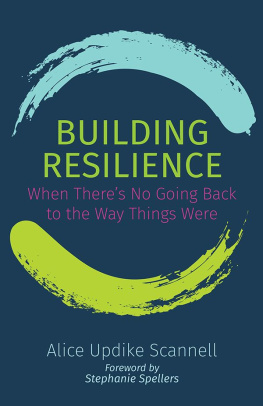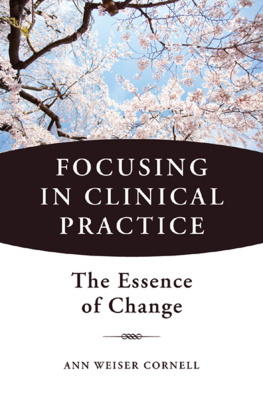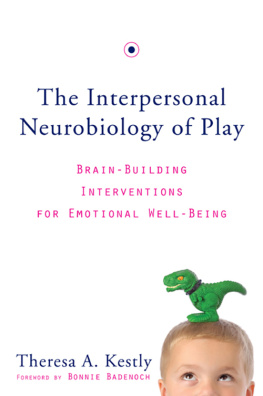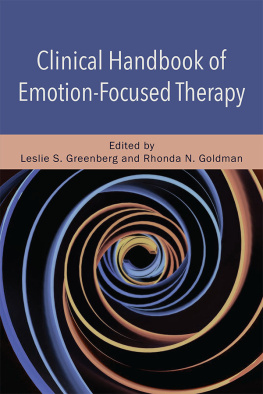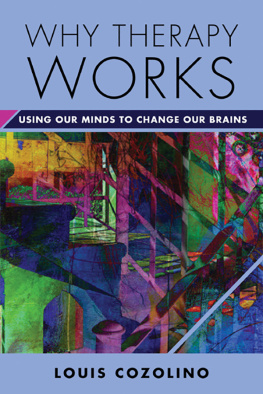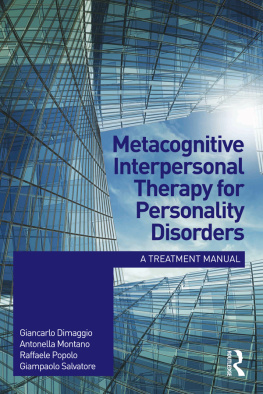
RESTORING RESILIENCE
Discovering Your Clients'
Capacity for Healing
EILEEN M. RUSSELL
Forewords by Diana Fosha
and Daniel A. Hughes

W. W. NORTON & COMPANY
New York London
A Norton Professional Book
Copyright 2015 by Eileen Russell
All rights reserved
First Edition
For information about permission to reproduce selections from this book,
write to Permissions, W. W. Norton & Company, Inc., 500 Fifth Avenue,
New York, NY 10110
For information about special discounts for bulk purchases, please contact
W. W. Norton Special Sales at specialsales@wwnorton.com or 800-233-4830
Production manager: Christine Critelli
The Library of Congress has cataloged the printed edition as follows:
Russell, Eileen (Psychologist)
Restoring resilience : discovering your clients' capacity for healing /Eileen Russell ; forewords by Diana Fosha and Daniel A. Hughes First Edition.
pages cm. (A Norton professional book)
Includes bibliographical references and index.
ISBN 978-0-393-70571-3 (hardcover : alk. paper)
ISBN 978-0-393-70690-1 (e-book)
1. Resilience (Personality trait) 2. Healing. I. Title.
BF698.35.R47R87 2015
155.2'4dc23
2015009230
W. W. Norton & Company, Inc., 500 Fifth Avenue, New York, N.Y. 10110
www.wwnorton.com
W. W. Norton & Company Ltd., Castle House, 75/76 Wells Street,
London W1T 3QT
For my husband, Mario
And my three beautiful children Gabriel, Cecilia, and Julian
The most powerful sources of my own resilience
CONTENTS
I am grateful for the opportunity to have written this book and for everyones patience with me during its prolonged gestation period. Writing is something I enjoy doing mostly because it is a way for me to continue to explore my experiences with patients, my understanding of the theories and techniques of psychotherapy, and my own role in the process. Now that it is done and I contemplate people (other than myself and my editors) reading it, I am both surprised by, and grateful to the readers of this book, for taking the time to sit with my reflections. I hope you find in these pages something that enlivens your work, stimulates your mind, and touches your heart.
There are so many supportive people to thank in the process of bringing a book to life. My familys support and patience has been tremendous. My children, who are still young, were very little when this process started (my youngest was not yet born) and are now more aware of what has transpired between me and my computer over these years. My experience of mothering them, of seeing the individuals they are and are becoming has sustained me personally and helped me understand what I do professionally so much more than I would have without knowing and loving them. My husband, Mario Russell, has been truly amazing. I am so grateful to him for making the sacrifices of time, money, and energy with me, for his support, encouragement, for helping me find or make the time, for asking me how it is going, for being patient, and for believing in this project, especially when I was confronting my own doubts.
My parents, Susan and Jerry McElroy have been transformational others for me many times over the years. In a field that prizes secure attachment but remains quite suspicious of its actual existence, it has sometimes been challenging even to me to really own the solidity of my first experiences with loving, kind, interested, and good enough true others. Among the earliest influences on my interest in resilience was their deep compassion and active caring for people in need and their attunement to how and why people struggle. Later, my fathers red pen accompanied the care and time he took to help me formulate and articulate my ideas as a high school student inundated by writing projects. And my mother, one of the most generous people I know, has offered many times to help in whatever way she could to lighten the load. I so deeply appreciate their ongoing belief in and support of me, and the freedom they gave me as I found my way. My sisters, Erin McElroy-Barker and Ciara McElroy have been constant and steadfast friends, allowing for my vulnerability and my strength. And I so appreciate how they do not take me too seriously and have made me laugh heartily so often over the years.
I am very grateful to any number of my friends who patiently listened to the book updates from time to time, who always asked how it was going, and who were very supportive of my doing it and finishing it and remaining sane at the same time. Several people come to mind in particular to whom I am very thankful: SueAnne Piliero, Patsy Mickens, Nancy Dolan, Michelle Vago Bubrick, Barbara Lee, Lesley Pella-Woo, Skye Wilson, and Elizabeth Nystrom. I also want to thank Barbara Lee, my oldest friend, whose capacity for joy, laughter, and connection inspired my first interests in the whole subject of resilience.
The hardest thing about writing this book has been balancing it with the other exigencies of life and occasionally my own rigid insistence on balance in life. I stopped being a workhorse after finishing my Ph.D. when I felt ready to retire at 29 even though I loved my work. Having a nose to the grindstone is absolutely essential at times but it seems that in our world, it is easy to believe we should be working like that all the time. This book presented itself as an opportunity when my twin children were still very young and my youngest had not even been conceived in imagination. I wanted very much to be a present mother and in the time I absolutely had to be staring at my computer waiting for words to come, I wanted to trust my children were still being loved well. I am so very grateful to Patricia Starkle, our babysitter and part of our family for 8 years. She was the other loving, solid, secure base for my kids when I could not be there and she allowed me some mental and emotional space for this project. I also so appreciated her letting me vent and sometimes just laughing with me about myself.
I have had the great fortune of being supervised, mentored, cared for, and befriended by two wonderful women who happen to be master therapists and great people: Diana Fosha, Ph.D. and Jenna Osiason, Ph.D. This book would never have been conceived if it were not for Diana Fosha, Ph.D. Not only have I learned the content and practice of AEDP from her, but she has been an extraordinary mentor to me, encouraging me always to do my thing, which includes this book. I am so grateful to Diana for all of her wise input and suggestions along the way and for taking the time to review the book and write its foreword. Dr. Jenna Osiason so lovingly helped me understand what I was seeing and doing in sessions with patients in concrete and very deep ways. She has both nurtured and grown with me as I have grown. I am so thankful to her for making it safe for me to bring myself into the room with her and for her very careful, astute, and intelligent listening throughout.
I have learned a tremendous amount from my colleagues, especially my fellow faculty at the AEDP Institute. I know how fortunate I am to be part of an enthusiastic, extremely talented, smart, and very compassionate group of colleagues and friends. I have learned so much from them and their work, the unique way in which they do it, the particular issues they are sensitive to, and the way they bring themselves to the task of being colleagues who are growing an institute together. I am thankful to all of them for their support, discerning feedback on the book, encouragement and, most of all, for their friendship. Fellow faculty of the AEDP institute provided not only support, but constructive and helpful feedback on the first several chapters of this book. The include: SueAnne Piliero, Benjamin Lipton, Jenna Osiason, Ron Fredrick, Steve Shapiro, Kari Gleiser, Danny Yeung, Jerry Lamagna, Natasha Prenn, Gil Tunnel, Barbara Suter, David Mars, Karen Pando-Mars, Ann Cooper, Dale Trimble, and Miriam Marsolais.
Next page
